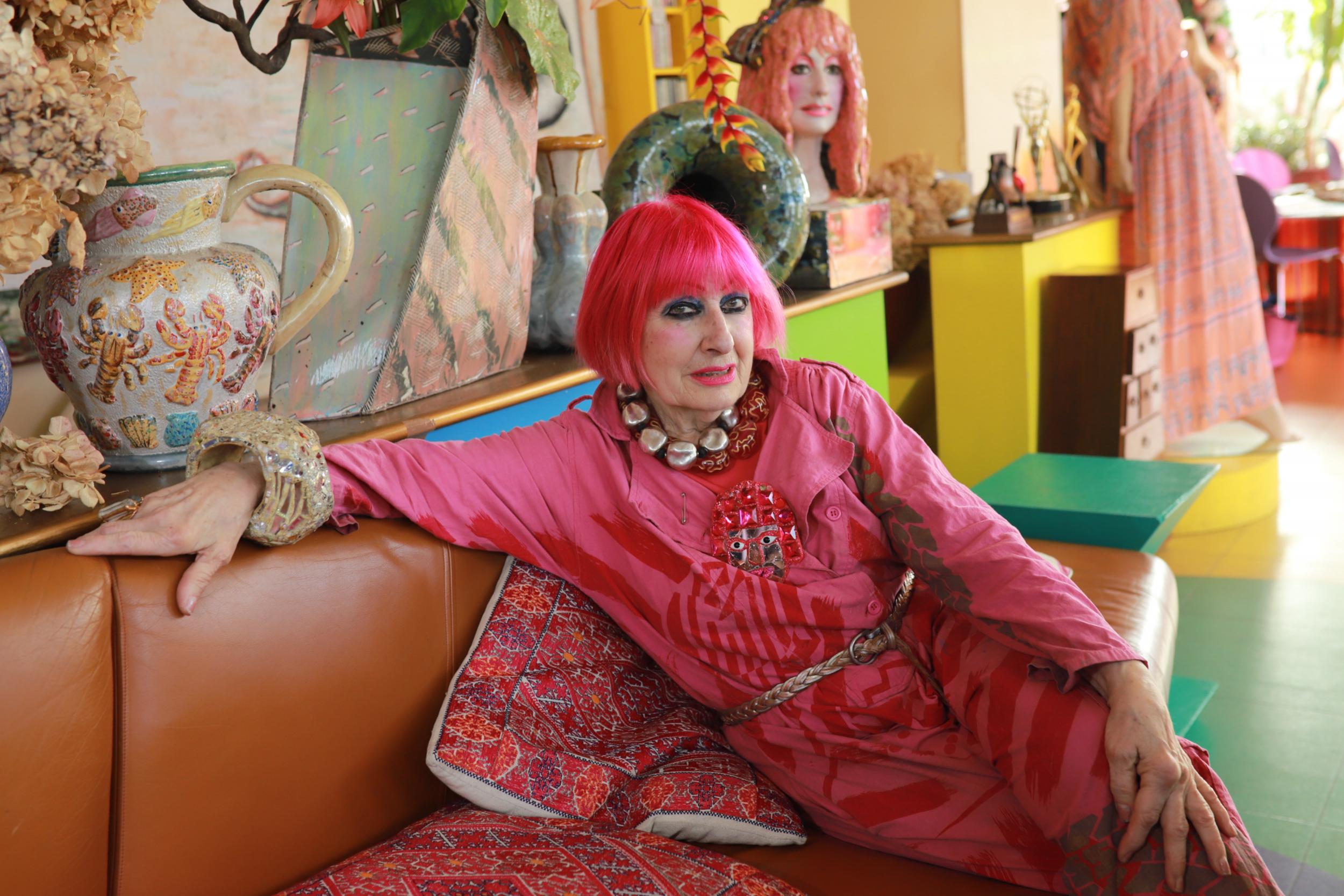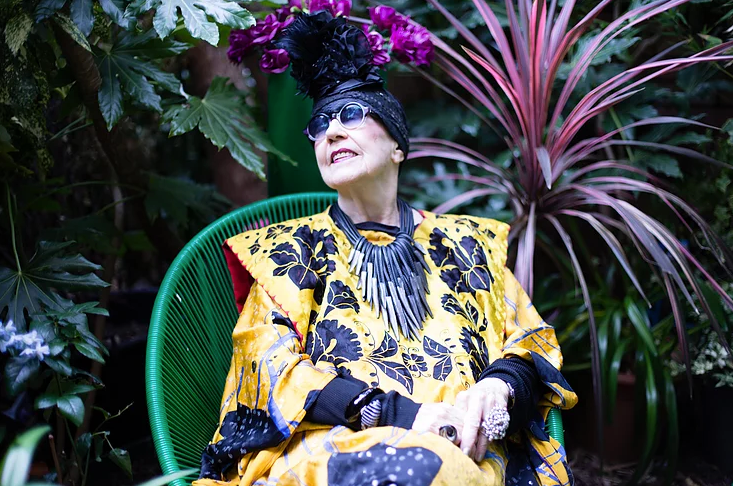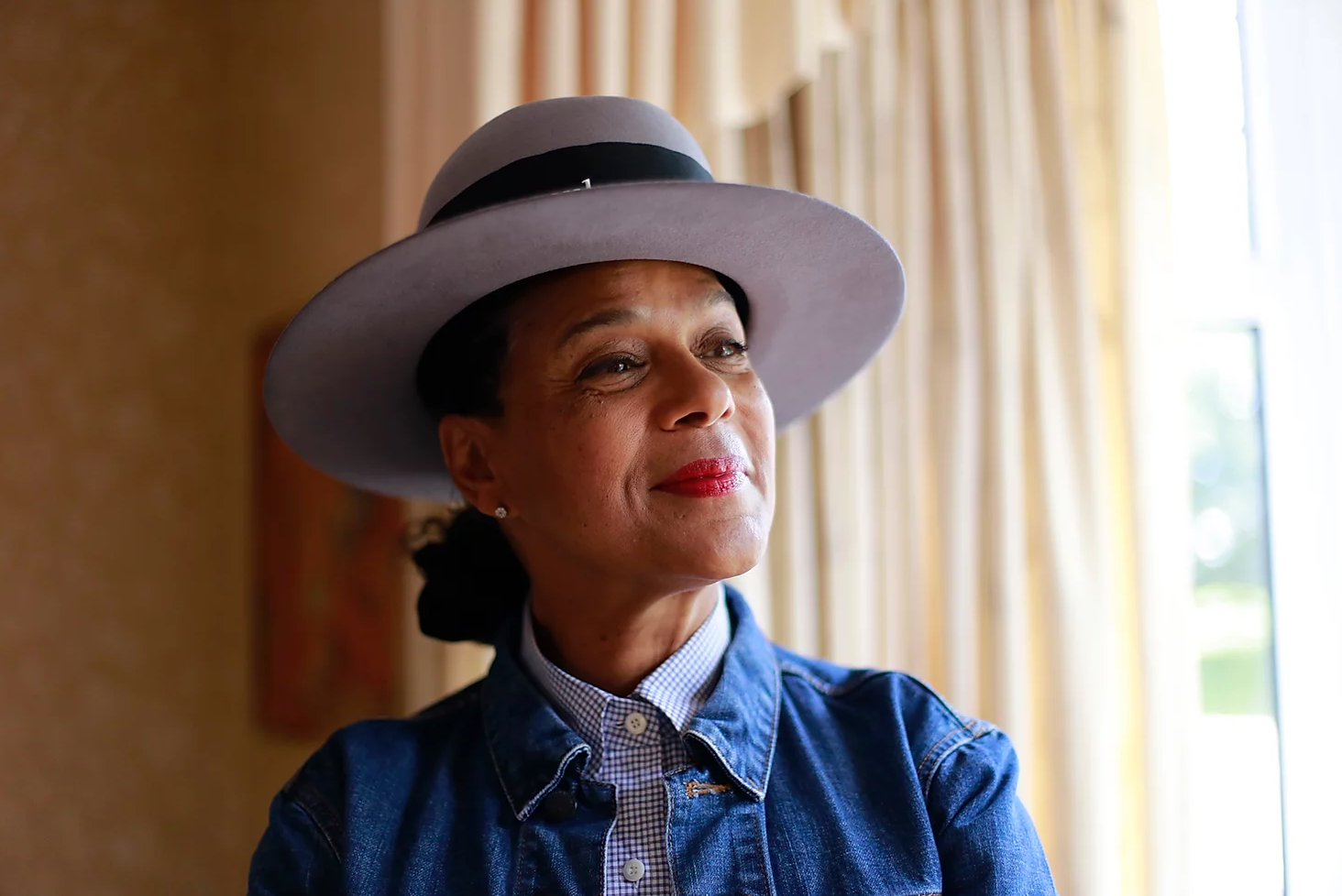The Last Bohemians: The podcast that captures the radical lives of women who do not give a damn
Through talking to Molly Parkin, Judy Collins and more on her podcast, Kate Hutchinson learnt the power of hearing older women talk about sex, lust, loneliness, and how art can pull you through


Your support helps us to tell the story
From reproductive rights to climate change to Big Tech, The Independent is on the ground when the story is developing. Whether it's investigating the financials of Elon Musk's pro-Trump PAC or producing our latest documentary, 'The A Word', which shines a light on the American women fighting for reproductive rights, we know how important it is to parse out the facts from the messaging.
At such a critical moment in US history, we need reporters on the ground. Your donation allows us to keep sending journalists to speak to both sides of the story.
The Independent is trusted by Americans across the entire political spectrum. And unlike many other quality news outlets, we choose not to lock Americans out of our reporting and analysis with paywalls. We believe quality journalism should be available to everyone, paid for by those who can afford it.
Your support makes all the difference.The moment I realised that I needed to think more bohemian was meeting Molly Parkin, the bejewelled, beturbanned grand dame of Soho’s sticky-floored arts clubs. During her 88 years, she has been a fashion editor, an erotic novelist, a stand-up comedian and an artist, and has spent many an evening getting sloshed with Francis Bacon and bedding famous bluesmen. We’d been in touch before, via email – hers always in gloriously shouty CAPSLOCK, as if I might not be able to hear her – when I asked her if I could read some of her poetry (filthy and funny, all of it) at an event. She agreed, and then almost a decade later we arrived at her tiny, kaleidoscopic bedsit on the World’s End estate in Chelsea, sometimes in 2018, with two radio mics and a recorder, to make a podcast.
I started the audio series The Last Bohemians to profile maverick women in the arts and culture like Molly. When we turned up on her doorstep, though, we had no idea that a story about her morning routine would turn into a meditation on the joys of painting, poetry and… pleasuring herself. Parkin might not be having any of her famous liaisons anymore (Bo Diddley and Louis Armstrong among them) but desire doesn’t go away, she said, just because you’ve got a bus pass. Nor does imagination. In series two, we speak to fashion designer Zandra Rhodes, who tells us that “creativity doesn’t retire”, and folk octogenarian Judy Collins, who reels off how she keeps her mind fit, from surrounding herself with fabulous women to reading the Tao.
These are the stories that I’d been craving. I had wanted to create an audio platform that didn’t exist before, and working with a collective of women, who produce an episode each, felt in the spirit of the series. But I also wanted evidence of different outcomes for how my life might pan out. As I continue to hurtle through my thirties, single, working too much, worrying about what other people think, I’m hungry for alternative paths that show that I don’t have to be living in a Victorian terrace with bi-fold doors and a husband who works for a design agency. Maybe, like countess and LSD researcher Amanda Feilding, a star of series one, I’ll be going to Burning Man in my seventies. Or, like Eighties club kid and the late Leigh Bowery’s best friend Sue Tilley, from a forthcoming episode of series two, taking up DJing in my sixties.
It’s powerful to hear older women talk about sex, lust, loneliness, and how art and creativity can pull you through. It’s also thrilling to hear them be shocking and saucy. International Women’s Day just gone is always awash with people championing inspirational women, and rightly so, but I also want to celebrate that they can be challenging, weird, leftfield, messy and outspoken. You don’t just have to be a good rebel girl. Where are the wild women, the outsiders – those who have, as the Financial Times put it, “existed outside of the roles that society had carved out for them”? And those who have proved that these personas are not just the preserve of men?
A Courtney Love gig a few years ago hammered this idea home. My friend Sharon and I sat watching in awe. Afterwards, we furiously discussed how men – like, I dunno, any rocker on the planet – get to behave like a toddler and yet women like Love are demonised for daring to be unapologetic about their vices. You could feel the arched eyebrows even at the recent NME Awards, as Twitter flooded with jibes about Love’s jolly demeanour when she presented an award onstage. I think, too, of Marianne Faithfull’s brilliant biography, Faithfull – probably one of the best documents of 1960s counterculture – which details how she was never granted the same (wild) authenticity as her peers, The Rolling Stones.

At a time of that oft-repeated phrase, social media anxiety, perhaps we could all do with wafting the bohemian spirit into our lives more often. I know that I certainly needed it. I was looking for the “no fucks given” attitude I had lost, to try and absorb it by osmosis. I never used to understand anxiety until my confidence was steamrolled in slo-mo by a bullying boss with an ego problem. I started second-guessing myself and stopped trusting my gut. I developed an acute fear of doing anything wrong and the chest-numbing panic that clouded my ribcage would last for days. As the series’ photographer, Laura Kelly suggested, I had to do something creative, to build my confidence back up on my own terms. (And as Collins says in her episode, surrounding yourself with strong women is “life giving”).
If I had felt that way – me, an experienced, loud, 30-something journalist – then I can only imagine what it’s like for people in their twentis and younger, as we collectively scroll through Instagram, comparing ourselves to our peers and hoping that today’s not the day we get called out. I hope this podcast reaches them. There is a sense, I think, hence the podcast’s title, of wanting to capture these subversive stories and radical attitudes in amber, so that they aren’t lost for future generations. I sent the first episode of series two with Judy Collins to a friend and she said, “It makes me sad for pop stars these days that they'll never have a life as exciting as that,” as Collins talked about making Leonard Cohen famous, tripping on magic mushrooms, getting tattooed with Antony Bourdain’s mum and gigging into her eighties.
Perhaps there is also a sense that I am misty-eyed for anti-behaviour in an age of extreme conformity. I don’t intend to glamourise the depression and addiction and breakdowns that can come hand-in-hand with living a life less ordinary – and women like Collins and Parkin have had a fair few struggles they’ve overcome, including alcoholism – but the stories told by these women are anything but the sanitised version of empowerment we often read about in the media today. In series one of The Last Bohemians, Cosey Fanni Tutti discussed how her sex and stripping work in the 1970s fed into her art. And Pamela Des Barres, the super-groupie who inspired Kate Hudson’s character in the film Almost Famous, talked proudly about who she’d shagged in Sixties California, unfazed by whether she and her peers had put men on a pedestal, or whether there were more sinister power dynamics at play. By interviewing women like Des Barres, I’m not agreeing with them, but she raises important questions about accountability and context.
The pioneers and game-changers don’t have to fit in a box, or be palatable, to chime with contemporary feminist ideals. Revolutions were not started by perfect women. Nor is it interesting to merely hear what we agree with and what validates us. We also need to hear what we disagree with, from older voices, to understand how things have changed or how we want them to evolve further. As the theatre-maker and critic Bonnie Greer said in her episode of The Last Bohemians, we need to hear what other people get wrong.
Bohemian behaviour, of course, evokes myriad possibilities. Is it glamorous sex vixens with Louise Brooks-bobs like Marchesa Casati, who threw lavish parties overlooking the River Seine as pet cheetahs roamed around? Crusty hippies injecting vegan oat milk into their eyeballs? Must you have dabbled in the occult, or wear a pork pie hat? Let’s not forget that briefly in the mid-2000s, The Libertines were touted as our great bohemian hopes. Virginia Nicholson, in her excellent book Among The Bohemians: Experiments In Living 1900-1939, writes that “everybody has a mental pigeonhole into which the imaginary Bohemian more or less fits”.

I suppose what I mean when I say “bohemian” is those people who do not give a damn, and whose relationship to art, music, literature and other culture can help us give less of a damn, too. In series two of The Last Bohemians, that includes experimental film-maker Vivienne Dick, who has never sold out her alternative vision; Maxine Sanders, who has endured a lifetime of persecution and victimisation to continue practising witchcraft; and soul singer PP Arnold, and her remarkable story of survival.
Me, I hope I am bohemian enough to never go on TikTok and will end up cultivating a fancy for wearing something exotic on my head. I hope, too, that we can make more of this podcast series, tracking down more last bohemians around the world. Those who are perfectly happy painting and wanking on their own in their studio flats, no f***s given.
Season two of The Last Bohemians podcast launches weekly until April 20, with Judy Collins, Zandra Rhodes, P.P. Arnold, Gee Vaucher and more, available on iTunes, Spotify and via www.thelastbohemians.co.uk
Join our commenting forum
Join thought-provoking conversations, follow other Independent readers and see their replies
Comments